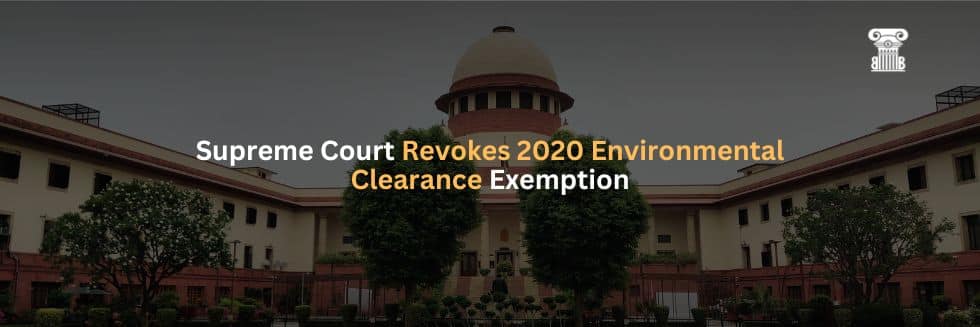In a landmark ruling, the Supreme Court recently overturned a 2020 notification by the Environment Ministry. The notification had exempted the extraction of “ordinary earth” for linear projects from obtaining Environmental Clearance (EC) in the case of Noble M Paikada v. Union of India (2024). This decision marks a pivotal moment in India’s environmental governance.
“Ordinary earth” is a term generally used to describe the common soil found on the Earth’s surface, which is a blend of minerals, organic matter, water, air, and a myriad of microorganisms.
Background of the 2020 Exemption
In March 2020, the Environment Ministry issued an exemption that allowed the extraction of ordinary earth for linear projects, such as roads and railways, without the need for an EC. This exemption was consistent with previous notifications that had exempted certain project categories from EC requirements. The exemption was reportedly designed to support various sectors, including potters, farmers, and non-mining activities, and was in line with amendments to mining laws made earlier in 2020.
Challenges to the Exemption
The exemption was primarily challenged in court for being arbitrary and violating constitutional principles. Critics contended that permitting unregulated earth extraction without an EC undermined environmental protections and breached the principle of equality under Article 14 of the Constitution. There were also concerns about the absence of public consultation and perceived bias towards private miners and contractors, particularly during the Covid-19 pandemic.
Government Response and Judicial Intervention
When the notification was contested before the National Green Tribunal (NGT), it ruled that the exemption needed to be balanced and hedged by appropriate safeguards, such as the process of excavation and quantum. Despite the NGT’s directive to the Ministry to review the exemption within three months, the government did not act until compelled by the Supreme Court. The Ministry’s subsequent issuance of an Office Memorandum and notification in August 2023, which attempted to regulate the exemption, did not address the main concerns.
In its judgment, the Supreme Court criticised the lack of clarity in the definition of ‘linear projects’, the absence of safeguards, and the hasty nature of the notification.
Implications of the Court’s Decision
The Supreme Court’s decision to invalidate the arbitrary exemption is a significant victory for environmental governance and judicial oversight. It emphasises the importance of due process, transparency, and environmental safeguards in policy development. Furthermore, this judgment serves as a reminder of the judiciary’s role in upholding constitutional principles and ensuring accountable governance, especially in matters related to environmental protection.






